Restaurants unsure if they’ll last the winter with COVID-19 relief talks stalled
"I didn't build my restaurant for a pandemic," said one restaurant owner.
Ari Weinzweig was standing outside of Zingerman's Roadhouse, one of his restaurants in Ann Arbor, Michigan, when a man pushing a child in a stroller walked up to tell him how important the restaurant has been during the coronavirus pandemic.
"'Man, I just got to tell you, you guys are so much more than a restaurant,'" the man told Wenzweig. "'You’re keeping all of us sane through all this … we come in for breakfast, we come at dinner. This isn’t just a restaurant. This is our sanity. This is our community.'"
This interaction is just one of many Weinzweig remembers from over the years at the various restaurants and cafes that make up the Zingerman’s Community of Businesses. Since co-founding his first restaurant, Zingerman’s Delicatessen, in 1982, Weinzweig says he’s watched as customers’ children have grown up. Ten years later, he still serves -- and jokes with -- the woman who nearly gave birth at one of his tables.
But like thousands of other restaurants, bars and cafes around the country, Weinzweig’s businesses have struggled to stay afloat.
One in six restaurant and foodservice outlets in the United States has closed since the pandemic began, according to a survey by the National Restaurant Association.
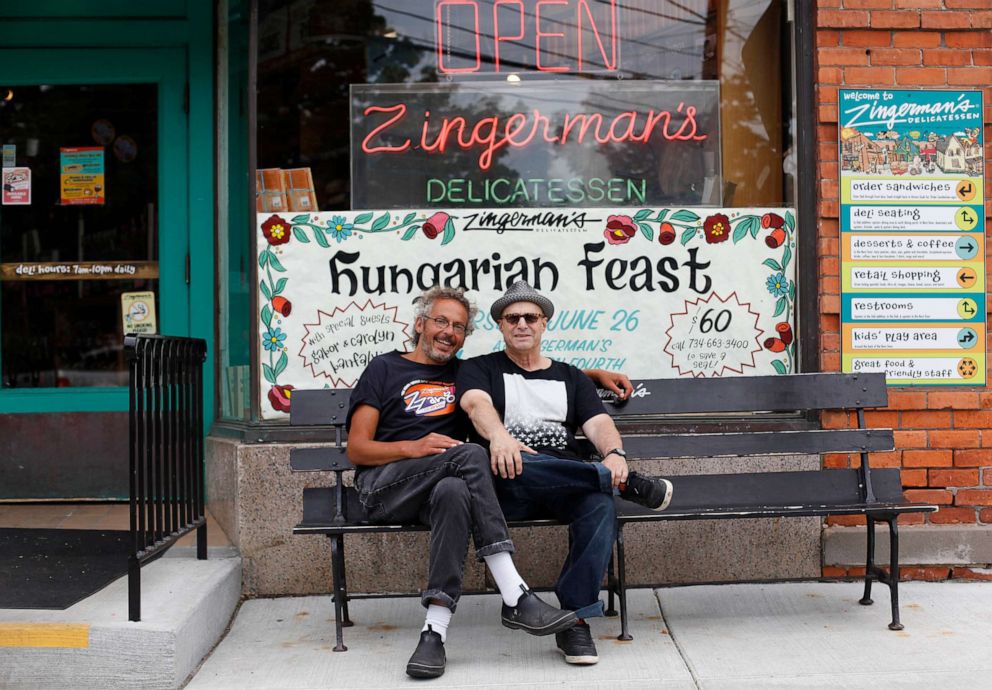
With the winter approaching, COVID-19 cases reaching all-time highs and relief talks stalled in Congress, Weinzweig is among the nearly 16 million people who work in the restaurant industry and the food supply chain. Eight months since the country started shutting down, they’ve grown desperate for aid.
Restaurants and cafes, Weinzweig says, are most often the so-called “third place,” a term coined by sociologist Ray Oldenburg to describe a place where people can gather and interact that’s separate from their homes (the first place) and their jobs (the second place).
“They just provide so much integrity to the local communities -- spiritual fabric,” Weinzweig told ABC News.
Although some of his staff has returned, Weinzweig had to furlough over a third of nearly 700 employees when Michigan shut down. Since March, he says his sales have flip-flopped from a 75% drop in the three months following the shutdown to what he called a peak of 75% in recent weeks thanks to boosts from indoor and outdoor dining -- the latter of which is permitted at 50% capacity in Michigan.
Many restaurant owners have invested in their outdoor dining patios, covering them up and adding heat lamps to attract and keep customers. Weinzweig isn’t convinced these measures will help.
“The reality is no one knows what to do because no one’s been through this before,” he said. “We've looked at tents. I'm not sure that it seems really viable from a health standpoint and a financial standpoint.”
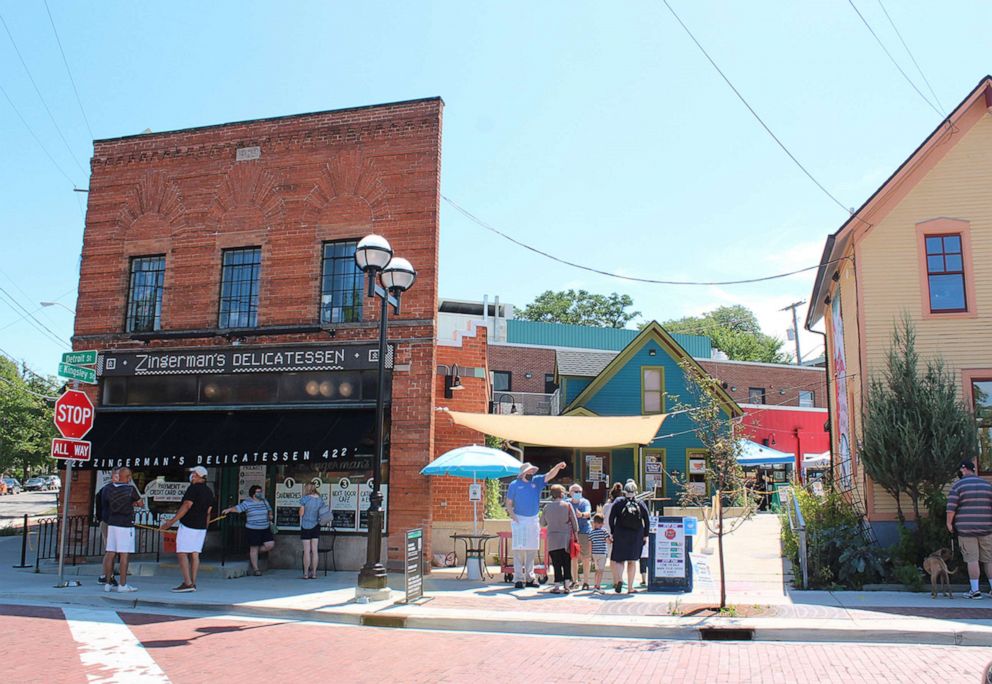
Indoor activity in group settings with poor ventilation "is a recipe for transmission," according to Dr. John Brownstein, an epidemiologist at Boston Children’s Hospital and an ABC News contributor.
“Indoor dining is one of a number of environments where there’s concern around resulting spread of infection, and so that will be considered one of those high-risk activities, especially as places around the country are dealing with real rapid increases in cases and hospitalizations,” he said.
The U.S. surpassed 10 million cases of the coronavirus Monday, according to Johns Hopkins University, meaning it has reported more cases of the virus than any other country. Over 237,000 Americans have died from the virus and every state except for Hawaii has reported an increasing number of cases, according to an ABC News analysis of data from The COVID Tracking Project.
Still, people like Amanda Cohen, chef and owner of Dirt Candy in New York City, believe investing in winter upgrades will help them get by. Cohen said she’s had a 70% drop in sales since the pandemic began, yet she recently spent $8,000 to have electrical cables installed in her small outdoor dining space, where she plans to serve guests under heat lamps this winter.
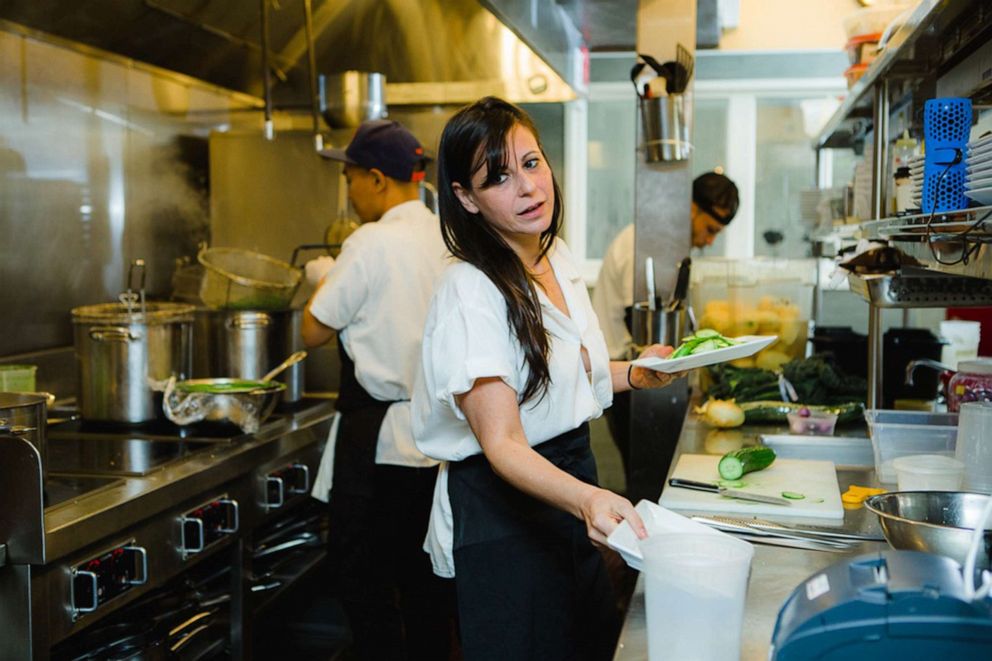
“It's incredibly expensive,” she said. “All these things, when I was putting my restaurant together originally, I didn't consider. I didn't build my restaurant for a pandemic.”
Over the last few months, Cohen said she’s had to pivot from a 10- to 12-course tasting menu to soups, salads and sandwiches. She’s furloughed 30 employees and rehired only seven. The money she received in June through a loan from the Paycheck Protection Program (PPP), a component of the Coronavirus Aid, Relief and Economic Security (CARES) Act, has run out, she said. If another stimulus bill isn’t passed by January, she says she may have to reconsider staying open.
The Democratic-led House passed the $3 trillion HEROES Act in May; however, it did not move forward in the Senate. House Speaker Nancy Pelosi and Treasury Secretary Steven Mnuchin have been negotiating the bill for months -- the White House is offering a $1.8 trillion compromise -- but were unable to reach an agreement before the election.
On Friday, Senate Majority Leader Mitch McConnell said that “the economy is really moving to get back on its feet” after the October jobs report showed the unemployment rate dropped to 6.9% from 14.7% in April. He said these figures “ought to affect what size of any rescue package we additionally do” and suggested a smaller aid package. That same day, during a news conference, Pelosi called on the Trump administration to “come back to the table.”
The leisure and hospitality industry saw the largest decline in employment in April following the shutdowns, with over 7.7 million people losing their jobs, according to the Bureau of Labor Statistics. Although the industry has been able to claw its way back over the last few months, 3.5 million people were still out of a job in October and many more may lose theirs come winter.
Inside of the stalled stimulus bill is the Restaurants Act, which includes a $120 billion grant program that would specifically go to those impacted by the virus in the restaurant industry. Among the organizations advocating for this legislation has been the Independent Restaurant Coalition (IRC), which says the Restaurants Act would result in $271 billion going back into the economy.
Acclaimed chef, TV personality and restaurant owner Andrew Zimmern co-founded the IRC with a few dozen other leaders in the industry.
Along with fighting for a restaurant-industry specific relief bill, he says the organization has also been successful in fixing some issues the restaurant industry faced early on with using PPP loans through the CARES Act, such as a requirement that businesses use the loan within eight weeks in order to apply for loan forgiveness. That was later extended to 24 weeks.
“The government slapped that together. They had good intentions, but it was a Swiss cheese piece of legislation,” he said.
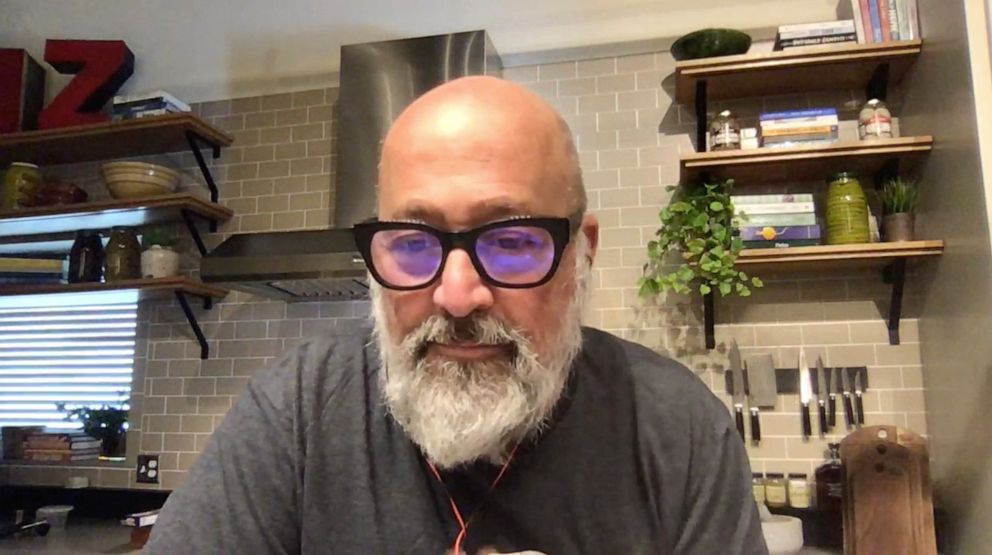
When Congress passed the PPP adjustments for restaurants in June, Zimmern said “it was a win for the American people. It was a win for the American economy. It was a win for bipartisanship and it was a tremendous win for our organization because it showed that we could affect change quickly and efficiently.”
The current bill, which has bipartisan support, would also make up for other shortcomings of PPP in the industry, like providing funds to only those businesses making less than $1.5 million in annual revenue in the first 14 days, with a focus on women, veterans and people of color.
“I really hope they pass something sooner rather than later, and more than anything, I hope they take the politics out of it,” Cohen said. “Places aren’t going to be able to survive. The more they’re seeing their numbers drop and the winter is coming, there’s no reason to stay open anymore.”
Karen Mills, a senior fellow at Harvard Business School, helped usher the country out of the Great Recession as the administrator of the Small Business Administration (SBA) from 2009 to 2013. She says her team has been working on relief strategies with officials at the federal and local levels.
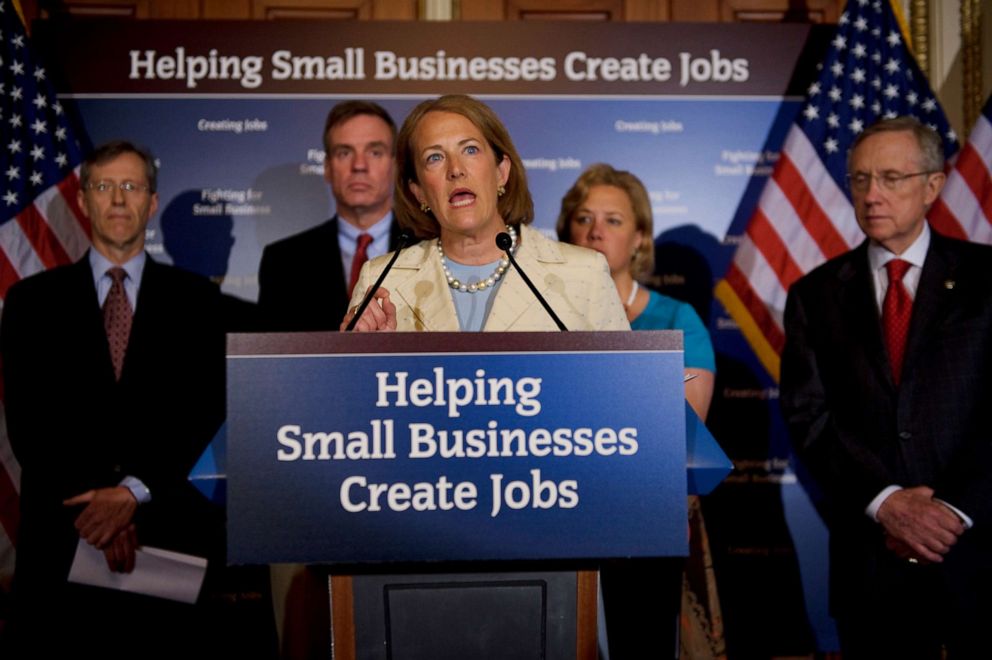
She says that restaurants, like other small businesses impacted by the COVID-19 shutdowns and restrictions, need “a bridge in cash” to the other side. On average, restaurants only have 17 days of cash on hand, she said.
“We cannot afford to lose them, and these folks need not just money to make it through, they're going to need some money to open their doors and get started again and buy some inventory and pay some people,” Mills said. “So they're going to require some special attention, but they are a really critical part of our economy.”
Kevin Boehm, cofounder of Boka Restaurant Group in Chicago, has been in the business for 30 years and says a top concern is his employees. Boehm said his restaurants made use of the PPP loans for as long as they could but knew that they’d be going into the winter losing money.
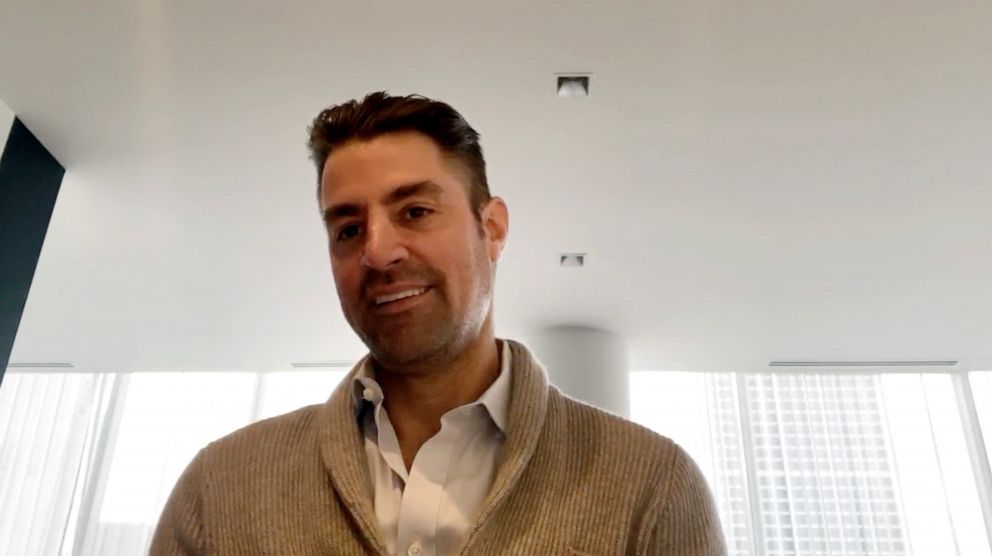
Then, late last month, Illinois Gov. J.B. Pritzker banned indoor dining due to rising COVID-19 cases throughout the state.
Boehm says the restaurant group employed about 2,000 people throughout its 20 restaurants when the pandemic began, but it had to furlough 1,842 employees when restaurants were shut down. He's closed down two restaurants and brought back about 800 employees.
“Now that they’ve eliminated that indoor dining, now it becomes a much more scary proposition,” he said about heading into the winter.
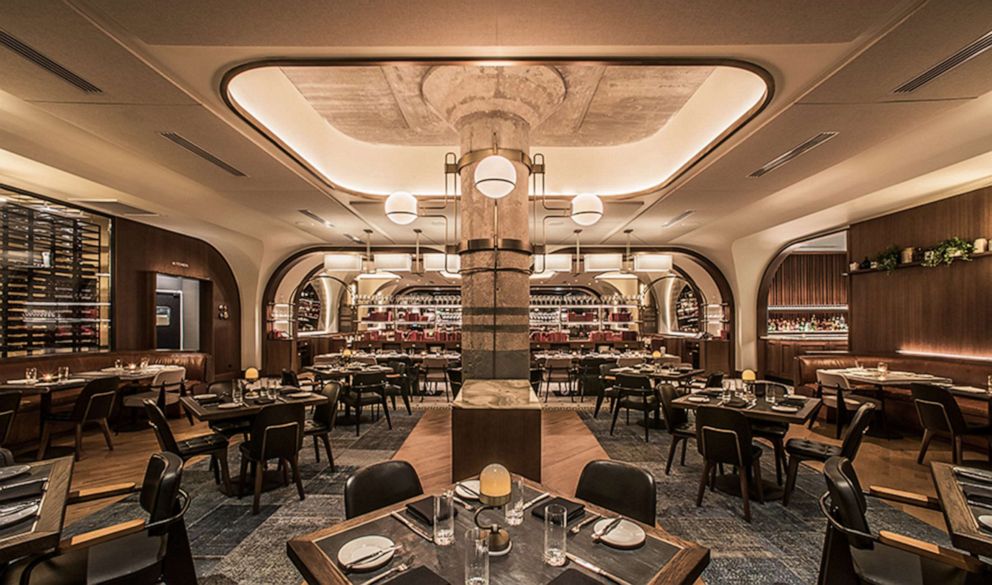
After speaking to his restaurant operators, he said “there is a desperation for the business. There’s a desperation for the people that we work with … that have just been put through the wringer.”
Although hard times lie ahead, Zimmern says the pandemic has laid bare some of the inequities that have long existed within the restaurant industry, such as the wage gap between employees. It's an issue some restaurant owners like Cohen have tried to tackle. At Dirt Candy, there has long been a no-tipping policy and employees have all made a living wage. Cohen believes more restaurants will start to do the same for their own.
“Managers sit at the top with guaranteed income and a package that includes health insurance and paid sick leave. Everyone else is hourly or temporary, which is horrific,” Zimmern said. “COVID ripped the lid off of this stuff and I, quite frankly, think in a perverse way, it’s probably going to force us to rebuild and reconsider those issues. So what would have taken more years to solve is being solved rapidly. COVID blew our house down, so now we have to rebuild it.”




